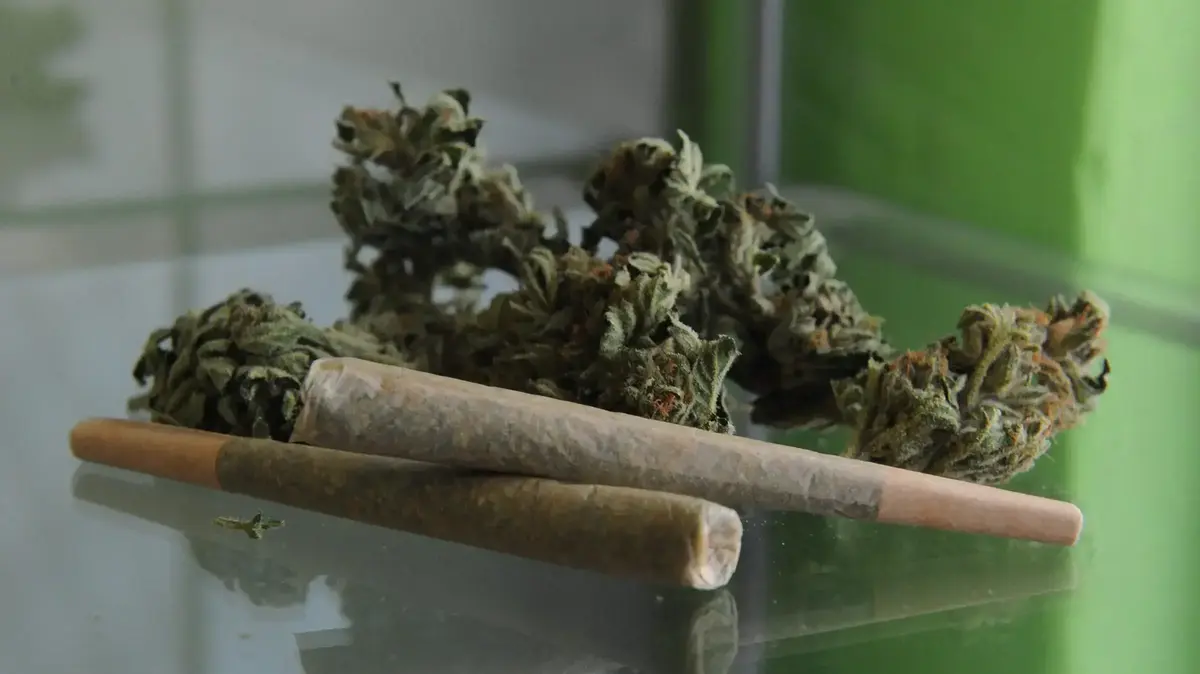The regulator's decision to approve imports, caused by the position of the local companies, was a death blow to the industry (Photo: Reuven Castro)
The Israeli medical cannabis industry is looking for a lifeline, but for now, it is only finding the rope to hang.
The culprit that the local players are looking for is in the mirror.
Every industry in its infancy goes through upheavals and the local medical cannabis industry is no different.
It has undergone constant upheavals in the last four years, but it is evident that the most powerful of them all is the regulator's decision at the end of 2019 to allow the importation of medical cannabis to Israel.
This decision led the producers and growers to the point of a desperate attempt just not to lose their investment, and to survive the period with the hope of implementing local legalization.
But the third quarter reports of the medical cannabis company 'Sheikh Medical' reveal the open secret: the profitability of medical cannabis is eroding and with it the viability of the local players to operate in it, at least at this time.
Shih Medical was among the only public and private medical cannabis players that presented a net profit in 2021, and especially among the companies in the field traded on the Tel Aviv Stock Exchange.
The company even showed an increase in revenues and net profit throughout its stay in the estate.
In the third quarter of this year, however, the company's results showed a sharp jump in revenues for the first nine months of the year to approximately 95 million shekels, representing an increase of approximately 152% compared to the corresponding period last year, but at the same time a decrease in net and total profit.
The total profit for the first three quarters of the year was about NIS 2.1 million, representing a decrease of about 4.4% compared to the corresponding period last year, in which the company's total profit was about NIS 2.2 million, generated from revenues of about NIS 38 million.
It should be noted that the company did not present unique or unusual expenses, except for tripling the cost of sales to approximately 64.8 million shekels, which the company explains as a result of increasing the scope of its activities.
The increase in activity also contributed to an increase of approximately 220% in sales and marketing expenses, which were approximately NIS 15.5 million for the first nine months of the year, and of approximately 45% in administrative and general expenses to approximately NIS 6.4 million.
In the shadow of the results of its financial reports, the company's stock ended the trading day yesterday (Wed) with a sharp drop of 17.58%, and its value dropped to approximately NIS 61.2 million.
The decrease completed the company's dive of about 51.17% since the beginning of the year and of 81.09% since the peak value reached by the company in January 2020, which was then about NIS 297.9 million.
The demand for medical cannabis in Israel is 52 tons per year.
The local companies produce about 100 tons - and to that must be added the imports.
Is it any wonder that the stocks are falling? (Photo: Flash 90, Hadas Proosh, Flash 90)
The mistake: war in the Ministry of Health
There are those in the industry who claim that the shock in the sector was predictable, in light of the local companies' opposition at the beginning of 2019 to the reform led by the Ministry of Health in the field, which introduced additional links to the value chain and led the companies to fear for their status and profits.
As a result of this fear, they avoided providing medical cannabis products to patients through the new reform of the office, creating a severe shortage in the market.
In order to respond to the shortage, the YKR (the medical cannabis unit of the Ministry of Health) then decided on a temporary measure of up to 6 months to import medical cannabis to Israel, to allow the local companies to respond to the demand, and the temporary became permanent
. In the market, a price war has begun which is taking its toll on the multitude of public companies that have been exiting the field in recent months.
The demand for medical cannabis currently stands at about 52 tons per year, when the growing and production capacity of the local players stands at about 100 tons, along with dozens of additional tons of medical cannabis are imported that are fighting for their place in the health of patients.
Some add that another contribution to the fall of the sector is in the business conduct of the companies, who did not live up to their forecasts and investors' expectations, were not prepared for the regulatory changes, and avoided engaging in imports.
Now the companies are hoping that the one who will save them from their mistake is the same party with whom they played in 'Brugez', but this is the place to remind that the Ministry of Health is committed to the quality of medical cannabis products, and not to the profitability of the companies that sell them.
Of money
our money
Tags
Cannabis
Medical Cannabis
The Stock Exchange in Tel Aviv
Ministry of Health

